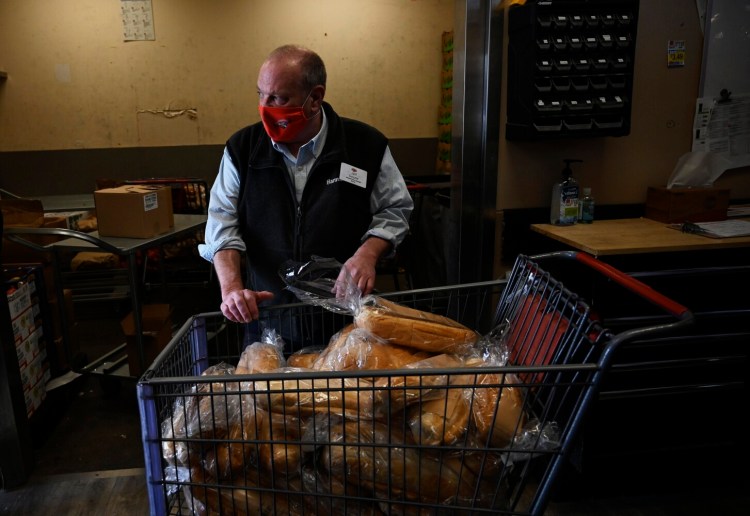Hannaford Supermarkets announced Tuesday that it is no longer sending food waste to landfills from any of its 183 stores in New England and upstate New York.
The Scarborough-based company said it is the first large grocery retailer in the Northeast to achieve the feat. Company officials said they have been able to do so through careful management of store deliveries, donations to food pantries and farms, and working with a Maine trash-to-energy operation to convert food that can’t be used otherwise into fuel.
In 2020, the company said, it diverted 65 million pounds of food waste that might otherwise have gone into landfills. Hannaford donated 24 million pounds to Feeding America, an umbrella organization for food banks and pantries, and the balance to livestock farmers and Agricycle, the company that converts waste food to fuel, company officials said.
Achieving the goal demonstrates the company’s commitment to its customers, the communities in which it operates and the planet, said Jim Hamilton, Hannaford’s vice president of operations. The grocery industry has made cutting down on food waste, particularly the amount that goes to landfills, a priority in recent years.
At a Portland event marking Hannaford’s announcement Tuesday, Hamilton said federal environmental officials estimate that as much as 40 percent of the food produced in the U.S. is wasted.
Hannaford’s announcement came a couple of days before Earth Day, but Hamilton said the company has been striving toward the zero-waste goal for years.
The effort begins with close management of the store’s ordering and a watchful eye on supplies on the shelves and sales at the register, said Jeff Gouzie, manager of Hannaford’s Back Cove store in Portland.
Computer programs help match orders and deliveries with anticipated demand and there are hourly updates on sales to make sure workers stock shelves throughout the day with enough products to meet demand, but not so much that a lot will end up as waste, he said.

Haley Deluca Lowell of Preble Street loads donated food from Hannaford Supermarkets into a Preble Street truck in Portland on Tuesday. Shawn Patrick Ouellette/Staff Photographer
Much of the food that reaches its “sell by” date is still safe for consumption, Gouzie said, and Hannaford donates that to food pantries. Bread is a good example – it is good for days after the sell by date on the label, he said.
Food that can’t be donated to pantries is offered to farmers who can use it in feed for their animals, Hamilton said. And Hannaford is partnering with Agri-Cycle, which takes food waste that can’t otherwise be used to an anaerobic digester in Exeter. It is then mixed with animal waste and heated, said Dan Bell, president and co-founder of the company.
That produces methane, which can be used to fuel electric generators, Bell said. The company also separates material that is then used as bedding for dairy cows at Stonyvale Farms in Exeter, and the process also produces liquid fertilizer.
Tackling the problem of eliminating and redirecting food waste is a key environmental goal, said Lisa Pohlmann, chief executive officer of the Natural Resources Council of Maine.
“We really need to get on top of this problem,” she said.
Pohlmann acknowledged that it’s a difficult problem to tackle. The NRCM has been working on a program to cut down on food waste in schools for seven years, she said.
“We have been making slow progress,” she said.
Send questions/comments to the editors.



